The music that Maria Maita-Keppeler creates seemingly comes off as effortlessly poetic. The engrossing swell of richness in the instrumentals, along with her longing vocals, have tapped into the purest section of the soul. Having etched this lane within her career, the Portland, Oregon musician has been seeing her profile increase after the breathtaking debut Best Wishes was released. Under the moniker MAITA, her latest effort, I Just Want To Be Wild For You via Kill Rock Stars, embodies a world that too often seems at a gauzy distance, framing complex ideas with visceral songs.
The smallest moments of confusion, uncertainty, and disconnection, Maita-Keppeler’s songs achieve incredible heights of emotion. “Loneliness” presents a dreamy, reflective beginning to the album. The unnerving pattering of drums played in the distance along with the moving guitar riffs create the perfect ambient backdrop while MAITA sings towards the end, “I love you, I hate you, I need you, where are you/I’ll tear up the floorboards to hold you again.” The band and MAITA change the pace with ripping guitar riffs in “Honey, Have I Lost It All?”
You split time living in English and Japanese-speaking homes with your parents. What did you say was the biggest takeaway from that time?
I am grateful that I was able to stay connected to the Japanese side of my family even while living in the US. I often think when you have a household where one parent is an immigrant, the culture of that parent gets lost over time. In this way (among others), it was a positive thing that my parents divorced, as both parents were able to create their households without pressure from the other to assimilate. Though I’ve lived in the US my whole life, I feel incredibly connected to Japanese culture. I’m fortunate that I can understand myself and the Japanese side of my family in ways that wouldn’t have been possible had I not had my upbringing.
I read that artists such as Elliott Smith, Feist, and Cat Power were inspirational to you in many ways. What about these acts that spoke to you?
These artists were among the first I began listening to as I made my departure from the local Top 40’s radio stations. I think what struck me then, which I didn’t even realize at the time, was the lack of polish and perfection that I was used to hearing on the radio. I knew nothing about production then, nothing about how differently a pop song is recorded and mixed compared to artists such as Elliott Smith and Cat Power. Still, I heard the difference and connected intuitively with the honesty apparent in the lyrics, the delivery, the instrumentation of what we call ‘indie’ music, for lack of a better term. Here was something that connected to the imperfect, messy, un-shiny parts of myself, the parts that felt unacknowledged within mainstream music.
What moment made you realize that you want to pursue music?
I turned the idea over in my head for a few years before admitting to anybody that I wanted to legitimately pursue music. To be honest, I am terrified of failure and didn’t want anybody to think that I was embarking on this fool’s errand of becoming an artist. I think it wasn’t until my freshman year of college when I went to see one of my favorite bands at the time (Bright Eyes, as a teenager in 2011 does) that I realized—I want to be a part of this world, I want to help make this experience happen for people. I realized then that if I kept my dreams a secret, they would likely never come to pass, and that realization outweighed my fears.
How much does your background in visual arts come into your music?
It doesn’t surface too often in the music itself; from the time I was a young child, I’ve done them in tandem. The contrast between the two forms of creation was always a bit of an asset for me: if I tired of one, I could switch to the other. When I began getting heavily into music, however, my visual arts practice began to wane, and it almost felt as if I wasn’t a visual artist any longer. Eventually, though, we began to lean on my artistic practices for all things ranging from merch, show posters, and even illustrations to accompany songs, and I began to feel re-inspired to create visually. In a world where so much of our culture is consumed by our hungry, ever-moving eyes, it feels like an asset to be able to add a visual component to the music.
Besides the obvious reasons, what was the most challenging part of releasing Best Wishes last year?
The obvious reason is the only one I can think of, and the hardest part about that was that we couldn’t tour on the record. Live shows have always been the place that music speaks to me the most. As a player, as an audience member, it is where that immeasurable connection happens. It was very disappointing to do the countless hours of work it takes to release a record—the planning, the obligatory social media blasting, the emails—and not get to actually be with people at the end of it all. It’s no secret by now that as artists in today’s world, the bulk of the work we do is not actually creative but clerical. To make it through all of that and not get to physically share the record with our music community….that was very hard.
How was the recording of I Just Want To Be Wild For You affected with everything happening with the pandemic?
We actually tracked most of the record before Covid hit, before I even came out. We just had overdubs left throughout the pandemic, which were manageable even with quarantine conditions. Matthew Zeltzer, who engineered the record, and I were able to do a lot of the overdubs, just the two of us either at home or at Bocce in Vancouver, WA. I will say there was a bit of a delay in getting the overdubs completed due to the pandemic malaise, but that is to be expected.
I Just Want To Be Wild For You was recorded in the basement of a church. Did you find the sessions to be haunting yet spiritual?
I’ve spent very little time in churches, and the bulk of them have not been for spiritual reasons. I didn’t grow up with any religion in the household, and so for me, the church was just a place with pews and high ceilings. Furthermore, the basement didn’t feel like a necessarily spiritual place, but kind of like a school instead. Still, the days that we recorded grand piano in the Sanctuary did have a special quality to them. There’s something about being a very small thing in a very large room that makes you feel insignificant, and I suppose there’s something haunting yet spiritual about that. I’ll also say it’s a bit eerie to wander around an empty church in the middle of the night. I’m definitely not immune to the unshakeable feeling of ghosts or spirits in old places at odd hours.
What was different from writing from Best Wishes to I Just Want To Be Wild For You?
With each record, I feel more focused. Best Wishes has a few songs on it from my earlier days of playing music and spans more years in terms of writing. The songs from I Just Want To Be Wild For You were written in a more condensed span of time, and it feels like a more vulnerable record for me. I get more courageous with every record as well, more used to sharing things that I haven’t been able to share before. Also when we got together to record Best Wishes in 2017, that was the first time we’d ever played with the band, and we had no idea where the MAITA sound would end up going. For “Wild For You” I knew a little better what the band would sound like and could imagine more of the production and instrumentation as I wrote, giving more opportunities for the rock band to shine.
I’m sure you have been told this, but your lyrics can draw you in. Especially with the new album, I was enthralled from beginning to end. How much do you incorporate your feelings and moments to draw inspiration in other ways?
I love taking inspiration from other people’s lives and then fleshing out the emotions that I could imagine them having. Still, I know I’m injecting large parts of myself into the narrative. I don’t think this is a bad thing; I think it’s a sign of empathy at work. What’s more, I could never presume to perfectly understand another’s emotions and present them in song form, so I think to claim that the bulk of what I write isn’t my own heart at play would be a bit arrogant. They say ‘write what you know,’ and I think this holds true for songwriting as well. While the stories I tell in my songs aren’t always my own, the emotions I present are in some shape or form fiercely connected to my own.
I love the flow with each track of I Just Want To Be Wild For You. Do you have a favorite track on the new album?
My favorite changes often, but currently it’s “Ex-Wife.” I had this job where my co-worker would come into the office and complain bitterly to me about his wife, who then eventually became his ex-wife. I felt compelled to write about her because her voice was so absent from the conversation because there was no balance in his portrayal of her—everything was negative. I think I have a natural inclination towards balance (Yes, I am a Libra, do with that what you will), and wanted to imagine her perspective into existence. My own emotions came into play when thinking about this term ‘wife’ or ‘ex-wife,’ which is what my mother’s title was as well growing up, and then the song turned into this broader meditation on the traditional role of a ‘wife,’ and then ‘ex-wife,’ with a dash of Asian cultural gender roles thrown in as well. We threw in the anti-climax at the end because it felt almost more visceral to leave things unsaid.
What’s coming up for you?
We have an album release tour beginning mid-February and at long last will be taking our music on the road! You can find our dates on our website here.
Photo Courtesy: Tristan Paiige


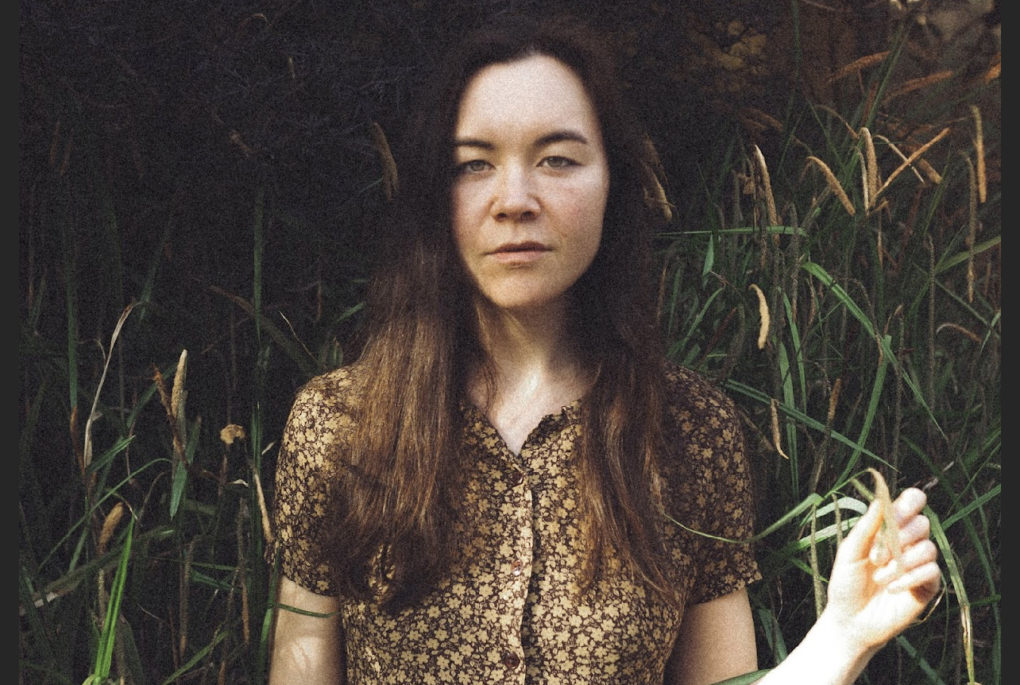
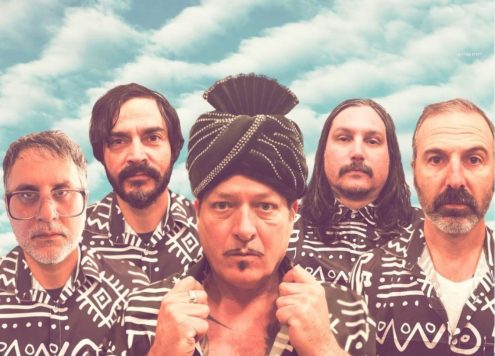
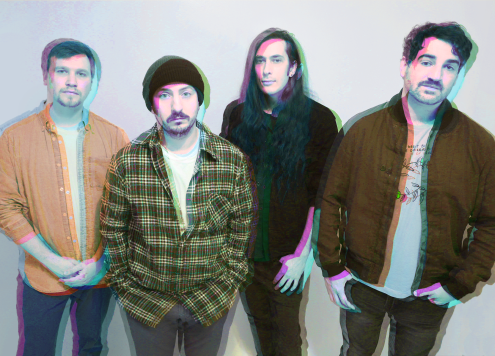
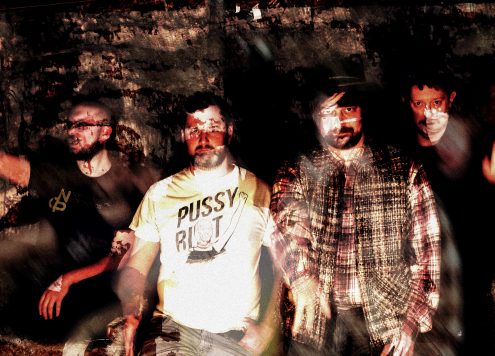

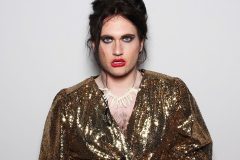
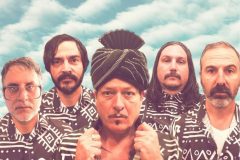
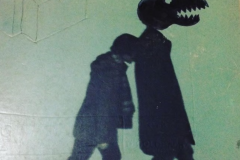
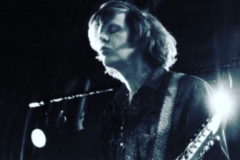

Social Media